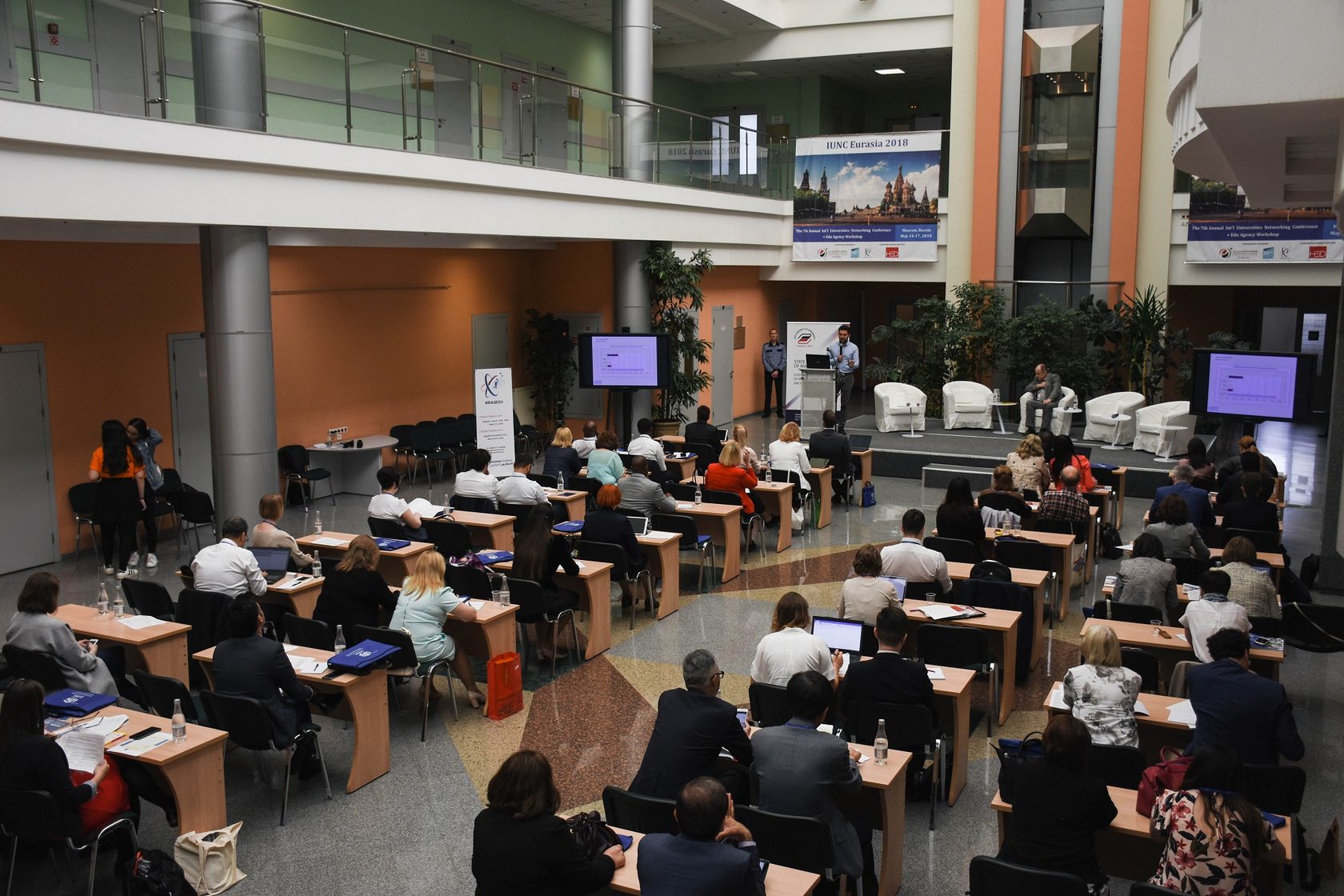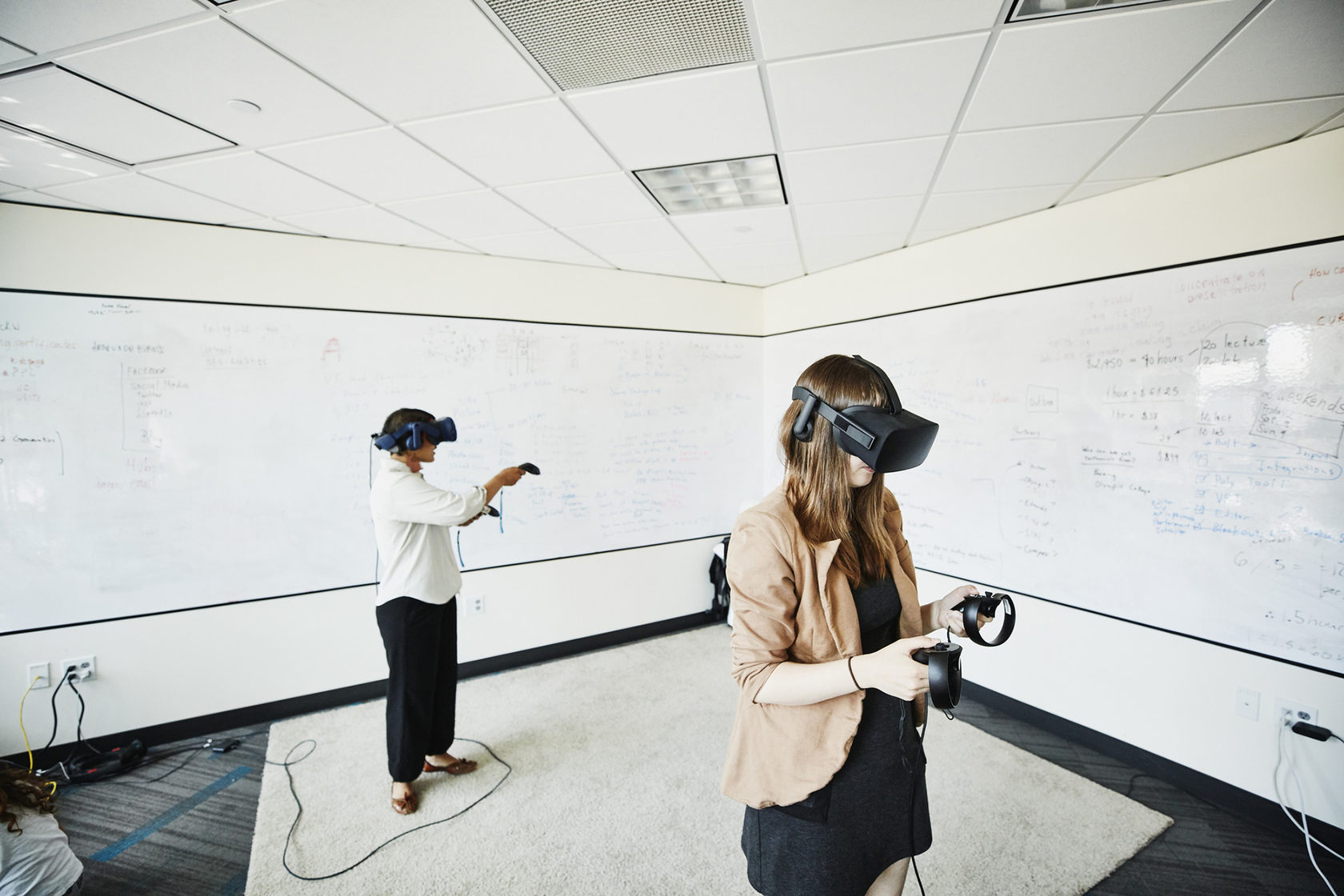University without borders: How Russian universities enter the export market
The strategy of leading Russian HEIs is now based on the world-class specialist training and higher education export. This can be achieved through digitization and international projects of sought-after departments.
One of the primary goals of new national project "Development of Education" by 2024 is to propel Russian higher education to the international level. It is planned to increase the number of international students and attendees of online courses threefold, from 220,000 to 710,000 people. The best foreign graduates will have good career opportunities in Russia. The revenue from Russian education export must increase more than fivefold and reach 373 bln rubles in 2025.
The titles of projects implemented as part of the program speak for themselves: "HEIs as the centers of the space for creating innovations", "Modern digital educational environment in the Russian Federation" and "Russian education export". We will have to develop new modes of study including those in English, online education, improve the regulatory structure that regulates admission and training of foreigners, create a common Internet navigator for the Russian education system.

The professional community itself also feels a need in changes. HEIs increasingly initiate major conferences, campaigns, studies conducted in cooperation with foreign colleagues, and the number of students enrolled in exchange programs is increasing. One of notable examples is the following: On December 6–7, 2018 over 1,000 of leading Russian and foreign scientists, government officials, representatives of business and diplomatic community, students and postgraduate students of Russian and foreign HEIs will gather at the State University of Management to participate in the II International Scientific Forum "The Step into the Future: Artificial Intelligence and Digital Economy". The event will be held with the support of the Ministry of Education and Science of the Russian Federation, under the aegis of the Russian Federation UNESCO Commission and in partnership with the Association of Business Schools of BRICS countries.
The expert will draw up recommendations for coordinated development of scientific, pedagogical and methodological competencies in the field of digital economy on the territory of member countries of the Eurasian Economic Union in cooperation with partners in Europe, Asia-Pacific in the formats of the Shanghai Cooperation Organization and BRICS. Grigory Orjonikidze, Secretary-General of the Russian Federation UNESCO Commission, Ambassador-at-large of the Ministry of Foreign Affairs of the Russian Federation, noted in his welcoming speech: "Digitization is an irreversible global process which should be properly used, moreover, it is important to learn how to manage it."

Student flow
WHO GOES TO RUSSIA FOR STUDIES
According to the Organization for Economic Cooperation and Development (OECD), now the Russian share in the total revenue of the global market of educational services is only about 1% (for comparison: the USA share is approximately 30%).
Today the percentage of foreigners in Russian HEIs is about 7% of the total number of students in the country, according to the OECD statistics; at the same time, according to the Ministry of Education and Science of the Russian Federation, 99,9% of international students have come from the CIS countries and only 0,1% from other foreign countries. There are over 93,000 people in total, and in terms of this Russia takes the sixth place in the world after the USA, Great Britain, France, Australia and Germany. At the same time the USSR was in top three just before its collapse, with over 500,000 foreign graduates in total over forty years (according to the Ministry of Education and Science of the Russian Federation).
What subjects do foreign students study in Russia?
Source: Ministry of Education and Science of the Russian Federation
Healthcare
17%
Economics and Management
16,5%
Humanities
12%
Russian Language
4,5%
Architecture and Construction
4,2%
4%
Legal Studies
Education and Pedagogics
3,8%
Geology
2,5%
Culture and Arts
3%
Information Science
2,4%
Other fields of study
30,1%
To soar in rankings
HOW DO RUSSIAN UNIVERSITIES COMPETE WITH THE BEST WORLD HEIS?
By 2020 not less than five Russian universities must enter the top-100 of the world rankings — this is a key goal of the state university support program "5–100". The participating universities are most interested in foreign students because this criterion gives additional scores in the world rankings.
Leading world universities and standing of Russian HEIs
Standing | University name | Number of students | Percentage of foreign students, % |
1 | University of Oxford (Great Britain) | 20 298 | 40 |
2 | University of Cambridge (Great Britain) | 18 749 | 37 |
3 | 15 878 | 23 | |
4 | Massachusetts Institute of Technology (USA) | 11 231 | 34 |
5 | California Institute of Technology (USA) | 2 255 | 29 |
6 | Harvard University (USA) | 20 595 | 26 |
7 | Princeton University (USA) | 7 996 | 24 |
8 | 12 318 | 20 | |
9 | King’s College London (Great Britain) | 16 425 | 56 |
10 | University of Chicago (USA) | 13 562 | 25 |
199 | Lomonosov Moscow State University (Russia) | 29 063 | 25 |
251–300 | Moscow Institute of Physics and Technology (Russia) | 5 687 | 15 |
301–350 | National Research University Higher School of Economics (Russia) | 19 527 | 9 |
351–400 | Moscow Engineering Physics Institute (Russia) | 6 804 | 21 |
501–600 | 10 268 | 15 |
Source: World University Rankings 2019
Andrei Sherbenok, Professor of Moscow School of Management SKOLKOVO: "To attract the best school leavers from all over the world to Russia, we must offer them the things provided by leading world universities: flexible educational formats, individualization and complex disciplinary composition.
Professor Vladimir Linnik, Head of Department of Research Coordination of the State University of Management, says that despite the high level of theoretical science, the Russian education system lacks flexibility to fulfill the digital transformation requirements in all economy sectors.

Common platform
Why integrate into international projects
The growth of presence of our courses on the international educational online platforms, creation of more common joint courses will improve recognizability of Russian HEIs. The State University of Management also places their bets on internationalization."
Olga Golikova, Head of the Department of Scientific Events: "We cooperate with 48 leading foreign HEIs and 74 international companies acting as a platform for effective work of researchers, teachers and lecturers from all over the world." One of the main platforms for such cooperation is the international forum "The Step into the Future: Artificial Intelligence and Digital Economy". This year its participants will try to answer the following questions: where will digitization take us, how to effectively manage this process and how to avoid a civilizational catastrophe when humanitarian and technological challenges of new information era clash.
Svetlana Malkarova, Deputy Head of the Department of UNESCO "Social and Legal and Ethical Foundations of the knowledge society (information society)", Vice-Rector of State University of Management, Candidate of Sociological Sciences: "To enhance sharing experience, knowledge and information, universities establish the UNESCO departments as part of the World Plan of Interuniversity Cooperation and Academic Mobility adopted at the 26th session of the UNESCO General Conference in 1991. They also ensure the entry of Russian HEIs into the global system of multilateral interuniversity and scientific cooperation. In 2018 we also established the Department of Social and Legal and Ethical Foundations of the Knowledge Society."
International projects involve a number of Russian HEIs. For example, "the representation office of the Association for Medical Education in Europe (AMEE) in Sechenov University allows it to integrate Russian medical education into the global educational environment, make it competitive," - says Petr Glybochko, Rector of Sechenov University. According to Trevor Gibbs, AMEE Development Officer, the association is interested in the experience of Russian online medical education, the use of artificial intelligence and digital support of medical decisions.
Philip Altbach, Founding Director of the Boston College Center for International Higher Education, a member of the Council of the Russian Government Program for Competitiveness Enhancement of Leading Russian Universities, is sure that innovative Russian HEIs can become world-class universities but this process will not be easy .
The Russian education system needs structural reforms including the reduction of HEIs' niche specialization, development of their institutional autonomy, diversification of financial resources, says Weifang Min from the Institute of Economics of Education (Peking University).
Many HEIs are just discovering the advantages of digitization, yet the success of universities in the context of global competition will depend on how long it will take to focus their policy and investments on achievement of optimal effectiveness.
Long live learning
The concept of long live learning becomes an essential part of educational process. One of implementation tools for this concept is open data, or MOOC (Massive Open Online Course).
Ksenia Ekimova, Vice-Rector of the State University of Management, Doctor of Economic Sciences: "The demand for open online courses of famous world universities which started providing free access to the recorded lectures turned out to be so high that it lead to the development of MOOC methodology. Russian HEIs also can export their education using such platforms as edX, Coursera, Udacity, implementing the MOOC concept. Modern universities must be absorbed by online environment rather than fight for lecture attendance."
Today there is an opportunity to translate more complex types of educational content.
Mikhail Nachevskiy, Head of the university project laboratory "Digital economy and high technologies" of the State University of Management: "This can be a system of VR-university with full immersion or accessibility of various databases, educational platforms and digital products".
